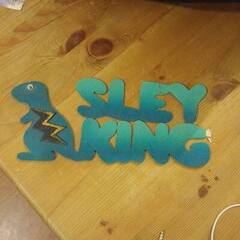So Awesome, SOOOOO Fast.
http://www.cbc.ca/news/technology/google-buys-b-c-firm-s-quantum-computer-for-nasa-lab-1.1393158
A quantum computer made by Burnaby, B.C.-based D-Wave Systems has been purchased by Google and installed at a NASA lab to solve problems requiring "creativity" — something that conventional computers aren't good at.
The $15-million D-Wave Two is currently being installed at the new Quantum Artificial Intelligence Lab at NASA Ames Research Center in Moffett Field, Calif., and should be up and running this fall, D-Wave announced Thursday.
The lab is a collaboration among Google, which provided the funds for the purchase; the Universities Space Research Association (USRA), a U.S. granting organization that made the purchase; and NASA, which is providing space for the lab, but is not directly involved in the purchase, D-Wave said.
The researchers expect to use the quantum computer to tackle problems related to machine learning, web searching, speech recognition, planning and scheduling, searching for exoplanets, and supporting operations in mission control centres. The USRA will also make the system available to other U.S. academic institutions.
"We are extremely pleased to make this announcement," said Vern Brownell, CEO of D-Wave in a statement.
"Three world-class organizations and their research teams will use the D-Wave Two to develop real world applications and to support research from leading academic institutions. This joint effort shows that quantum computing has expanded beyond the theoretical realm and into the worlds of business and technology."
Quantum computers store data in units called qubits, analogous to the bits used in conventional computers. But while each conventional bit stores information as either 1 or 0, qubits make use of quantum mechanics — laws of physics that apply only to very small particles such as atoms — to encode information as both 1 and 0 at the same time.
That property, known as superposition, means quantum computers with a given number of qubits can store exponentially more information compared to conventional computers with the same number of bits, and are better at certain types of operations and problems.
Quantum computing is still an emerging technology, however, and D-Wave's products are among very few on the market.
The D-Wave Two has 512 qubits, making it considerably more powerful than its predecessor and the company's first commercial quantum computer, the 128-bit D-Wave One. 'Most challenging computer problems'In a post Thursday on the Google Research blog, Hartmut Neven, Google's director of engineering, also announced the launch of the lab and said the company believes quantum computing "may help solve some of the most challenging computer problems."
In particular, Neven said, quantum computers have potential in a branch of artificial intelligence called machine learning that is used to build computer models of real-world phenomena such as climate.
"Machine learning is highly difficult," Neven wrote. "That's because building a good model is really a creative act."
He likened it to the problem solving that an architect needs to do when designing a house while balancing constraints such as budget, usage requirements and space limitations.
"Classical computers aren't well-suited to these types of creative problems," Neven said.
He added that Google researchers have already developed some machine learning algorithms for quantum computers and learned that a mix of quantum and classical computing generates the best results.
NASA said the quantum computer could dramatically improve algorithms for optimization tasks in air traffic control, autonomy, robotics, navigation and communication, system diagnostics, pattern recognition, and mission planning and scheduling.
According to D-Wave, the D-Wave Two had to pass a series of benchmarks and tests before installation, and "met or exceeded the required performance specifications, in some cases by a large margin."
Google and NASA will each have access to the D-Wave Two 40 per cent of the time and the USRA will provide access to academic institutions the remaining 20 per cent of the time, D-Wave said.
D-Wave sold its first quantum computer, the D-Wave One, to defence and advanced technology company Lockheed Martin in 2011, allowing it to bill itself as "the world's first commercial quantum computing company." Lockheed Martin upgraded to a D-Wave Two earlier this year.
The potential of quantum computing technology has captured the attention of BlackBerry co-founders Mike Laziridis and Doug Fregin, who launched a $100-million private fund in March to boost the development of Canada's fledgling quantum computing industry.







